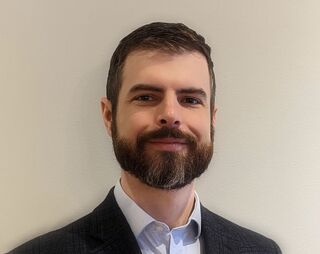Optimism
Threading the Needle: The Space Between Optimism and Despair
A better understanding of hope to stand firm in the face of uncertainty.
Posted February 16, 2021
This guest piece is written by Michael Milona.
We seek hope where it is difficult to find. Many of us have experienced a longing for hope after a serious medical diagnosis or following the end of a marriage. In a political context, we may wonder whether hope is to be found amidst the threats of climate change or against the rising tide of political polarization. Instead, the current moment offers ample opportunity for despair.

But before we get lost looking for hope, consider a question that might save us a lot of trouble: What’s so special about hope? Can we, or should we, do without it?
Advocates of hope may seem to see the world through rose-colored glasses. Some worry that hope isn’t realistic, distracting us from the severity of present and future crises. But for others, continuing to speak of hope and the possibility of overcoming adversity works as a final bulwark against despair. And to talk of despair is to talk of the impossibility of progress and the absence of motivation to act at all.
The difficulty is that people have different ideas about what hope is. Recent philosophical work has something to contribute here. It can help to clarify the nature of hope, disentangling it from related concepts. These efforts help us to see the value of hope. Even against all odds and amidst extreme challenge, there is often the possibility of “hoping against hope,” without the slightest bit of irrationality. This sustaining hope occupies the space between optimism and despair.
Hope and Optimism
Hope and optimism aren’t the same. Optimism is standardly defined as an expectation that things will go well. Furthermore, one can be generally optimistic about achieving one’s goals, or optimistic about a specific goal. For example, when you’re visiting your favorite restaurant, you expect to achieve your goal of a tasty meal. But when you’re on a road trip and hunger pangs force you to stop at a lonely, deserted diner, you can no longer be said to be optimistic. Just consider how ridiculous it sounds to say, “I don’t expect this meal will be good but I’m optimistic it will be!” At this point, you can only cling to the hope of a tasty meal.
So we can sometimes find hope even when optimism vanishes. For example, perhaps it’s now foolish to be optimistic about avoiding the destabilizing effects of extreme political polarization and conspiratorial thinking, especially in the wake of the storming of the US Capitol. But what about hoping?
Like optimism, hope requires a goal or a desire. But it doesn’t require us to believe that our desire will be fulfilled. Maybe we even suspect that it won’t. This is hoping against hope. Philosophers agree that hope requires only a belief in the barest possibility of what one desires. Those who hope see a reason to keep trying because they believe success is still possible, despite the difficulty.
Hope is a source of motivation. If you hope, say, to get a promotion at work, then you’ll do things that make getting that promotion more likely. To put it metaphorically, those who hope seek pathways to their goals. This is why it can be a good idea to cling to hope even when the odds are stacked against you.
Of course, sometimes we need to let go of hopes. Maybe hoping for the job promotion isn’t worth the energy, especially if one has more important projects that require attention. The point is just that, when the stakes are high and the odds low, hope can supply the crucial motivation.
Hope and Fear
But when we must confront a difficult task, should we always turn to hope? Some argue we shouldn’t. Readers may be familiar with Greta Thunberg’s powerful remarks at the 2019 World Economic Forum:
Adults keep saying: ‘We owe it to the young people to give them hope.’ But I don’t want your hope. I don’t want you to be hopeful. I want you to panic.
According to Thunberg, there comes a point at which things become so dire that even hope must be tossed aside in favor of negative emotions like fear and panic.
The danger here is that, for some people, giving up on hope risks hopelessness. To be hopeless isn’t just a lack of hope; it’s a positively deflating state of despair.
Fortunately, we aren’t faced with a choice between hope and fear. The Stoic philosopher Seneca once remarked that hope and fear are “bound up with one another … the two of them march in unison like a prisoner and the escort he is handcuffed to” (Letter V). Hope and fear both trade in the space of uncertainty. Whenever you’re hoping, there is a fear that your hope won’t be fulfilled; and whenever you’re afraid, there is a hope you’ll avoid the danger.
Hope isn’t something that always “feels good.” Instead, hope invigorates us in the face of uncertainty. This energy and momentum thwart despair. But even as one hopes, one may experience intensely negative feelings of fear and anxiety.
A Shred of Hope
Without hope, it’s not clear that we’ll have any motivation to confront personal and political challenges. Hope reveals reasons to move forward, and absent hope we may not see those reasons. Or if we do see a reason, it may be because we hope to be the kind of person who struggles in the face of overwhelming odds. Either way, when we seek to make a difference, there is something we hope to accomplish.
In the end, by gaining a better understanding of what hope is, we can see the tight spaces in which hope can continue to reside. For those who seek it, there is almost always the prospect of hope, a hope that threads the needle between foolish optimism and deflating despair.

About the Author: Michael Milona earned his Ph.D. in philosophy at the University of Southern California. He is currently an Assistant Professor of Philosophy at Ryerson University and is the author of a recent white paper on hope and optimism published by the John Templeton Foundation. Prior to this, he spent a year at Cornell University as part of the Hope and Optimism Initiative.




